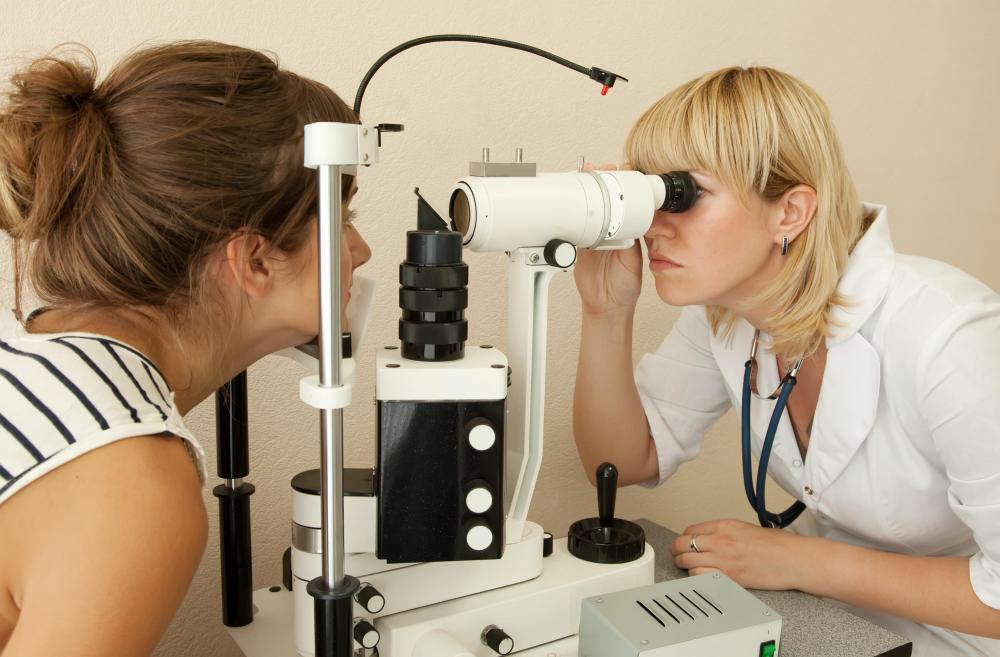At WiseGEEK, we're committed to delivering accurate, trustworthy information. Our expert-authored content is rigorously fact-checked and sourced from credible authorities. Discover how we uphold the highest standards in providing you with reliable knowledge.
What is Laser Photocoagulation?
Laser photocoagulation is a surgical procedure that is used to deal with seepage from a damaged macula or a ruptured blood vessel. The process employs a laser to cause the tissue around the point of the leak to coagulate and seal. This approach to eye restoration is helpful in treating many different types of eye diseases, especially macular degeneration and various types of retinal issues.
When used to treat eye conditions, the procedure makes use of equipment to train a concentrated laser at the precise spot where the leakage is taking place. As the light energy converts to heat, the concentrated beam seals the rupture, making it possible to partially or completely repair the damage and restore at least some visual acuity. Unlike other methods of cauterizing ruptures, laser photocoagulation leaves behind less scar tissue, which also helps to promote the retention of a more equitable amount of vision.

Along with diabetic retinopathy and macular degeneration, other types of eye conditions can be treated laser photocoagulation. Glaucoma and retinal ischemia are two examples. This procedure can also be effective in correcting an issue that sometimes arises as a result of cataract surgery, known as posterior capsular opacification. The use of laser photocoagulation helps to remove elements that obscure vision and improve the results obtained from the cataract treatment.

One of the other advantages of laser photocoagulation is that the treatment is often administered on an outpatient basis. For people suffering with damaged retinal blood vessels or some form of diabetic retinopathy, this approach to medical care means a quicker recovery time and in some cases better results than were possible with older methods. In addition to shortening the recovery time, the patient is also likely to experience less pain during the actual treatment and the post-operative period.

There are a few potential side effects associated with laser photocoagulation. For the most part, the side effects occur infrequently and are only temporary. In rare instances, the patient may experience some loss in peripheral vision. Some patients have noticed a decrease in the ability to recognize certain colors. A permanent reduction in night vision capability may take place. There is also a small chance of the procedure leading to hemorrhaging in the eye that could lead to a partial loss of vision. Patients who notice any side effects during the recovery period should report them immediately, so they can be assessed and any appropriate action taken.
AS FEATURED ON:
AS FEATURED ON:


















Discussion Comments
@Charred - The good news about most eye surgeries is that the eye tends to recover quickly. That’s not to say there won’t be side effects to your treatment. But I think you’re chances of recovery with a laser photocoagulation procedure are much better than with any other kind of standard surgery.
Laser treatment is very precise and targeted. I can’t imagine how a surgeon would use an instrument made of steel to accomplish a focal photocoagulation, for example, where you’re trying to seal off blood vessels near the retina.
My father was given this laser photocoagulation treatment for his glaucoma. He said he had some side effects, like some blurring of his vision which was especially difficult for him to endure at night when he had to drive. He still said it was worthwhile as his glaucoma was getting to be pretty bad.
Post your comments